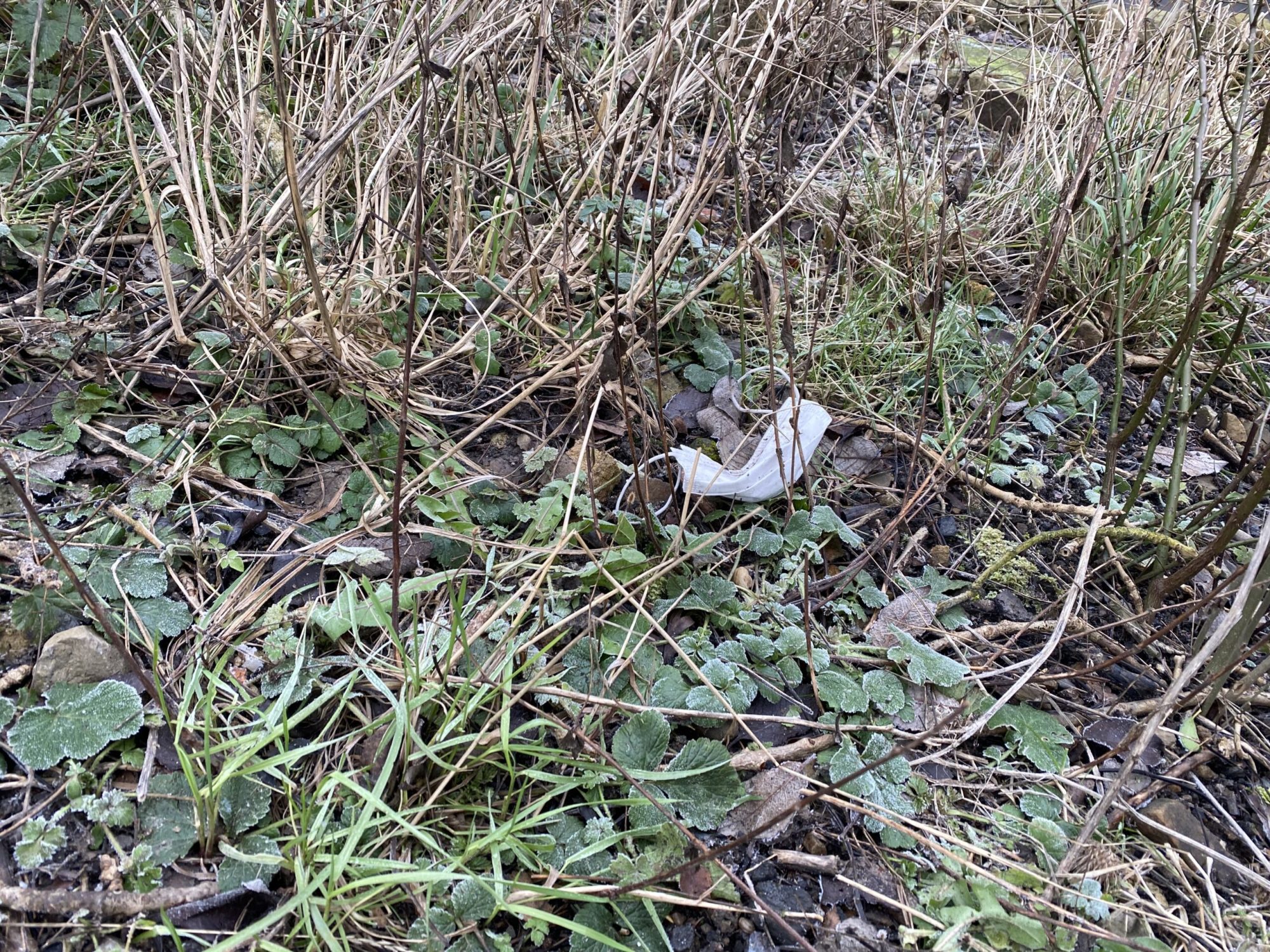What is Plan B and What Does it Mean For Workplaces?
Detailed in the UK Governments Autumn and Winter Plan, option B could see the re-introduction of masks and other restrictions. What does this mean for the newly...
Read Full Article
Litter pickers across the UK are reporting a huge increase in the number of dumped contaminated disposable face masks being spotted during their patrols, as the number of single use masks used in the UK during 2021 is feared to reach 19.5 billion.
“The scale of the problem of carelessly dumped disposable face masks is massive – we use 52 million single use plastic masks a day and sadly some of these are being dropped, or simply fall from people’s pockets – sightings are increasingly common now”, explains Charlotte Green of TradeWaste UK.
"As a country we have worked so hard to reduce plastic consumption, yet we are sleepwalking into another nightmare”
– Charlotte Green
TradeWaste UK
The number of disposable face masks that will be used across the UK in 2021 has been calculated at 19.5 billion. A proportion of these are discarded either carelessly or accidentally, meaning many end up being blown into woods making their journey into streams, rivers and eventually the sea. In perspective, the figures translate as follows:
The problem of how to dispose of masks is tricky, with no easy way to recycle and conflicting ways to handle potentially contaminated masks – the real problem is the littering caused by careless users. In December, TradeWaste reported that we were even using as many as 53 million a day. They noted how the multi layer plastic makeup made them particularly difficult to process.
Litter pickers across the country are reporting an increasing number of masks being collected during their rounds. In Fife, the Street Champions group reported finding 1 mask for every 60m they patrolled near a shopping area in Rosyth - they have collected a total of 3,500 since March. This is common across the whole of the UK.
Max Ratcliffe, aged 6, from Menston in West Yorkshire took part in a home-schooling project to examine litter and its effect on the environment in his local wood. He was shocked by how many masks he spotted, with 1 dumped mask found every 50m on a path popular with dog walkers. “I think it’s really bad. People should put them in the bin. Animals might eat them, and they might die”, reported Max.
Used masks are not only a littering issue, but also a health and safety one.
“Used masks are tricky and you should not touch a used mask – they should be treated like any other potentially contaminated material and only handled professionally using the right protecting equipment”, explains Charlotte Green, “and there are obvious risks associated with coming into contact with a used mask”.
“The way to tackle this potential environmental disaster is for everyone to move towards washable reusable masks, not only will this cut down on single use mask litter, but it also reduces the environmental impacts of manufacturing 19.5 billion plastic masks in the first place. As a country we have worked so hard to reduce plastic consumption, yet we are sleepwalking into another nightmare”, she concludes.
TradeWaste are encouraging businesses and individuals to rectify this issue at the source by wit their Ditch Your Disposable campaign. This echoes similar initiatives pushed across many industries over the last decade, as pressure has mounted to consider the impact of non-biodegradable plastics in the enivronment, encouraging alternatives to plastic straws and cups for example.
By switching to re-usable masks in 2021, it’s estimated you can save £190, as a personal incentive.
Of course it's not practical for workers in facilities like hospitals, clinics, care home, other frontline sectors and those contracted temporarily to use items of PPE more than once which is why it's important that the rest of us make up for that. Just as you cannot neccessarily stop the large amounts of waste in commercial production, you can recycle at a consumer level.
Picture: a discarded disposable mask.
Article written by Bailey Sparkes | Published 03 February 2021
Detailed in the UK Governments Autumn and Winter Plan, option B could see the re-introduction of masks and other restrictions. What does this mean for the newly...
Read Full ArticleWith businesses interested in conducting their own private workplace coronavirus testing for employees, what do employers need to bear in mind? The government’s...
Read Full ArticleAs the COVID-19 Inquiry continues, a leading expert on aerosols will give evidence on how UK healthcare officials denied overwhelming scientific evidence that COVID-19 is...
Read Full ArticleGuidance issued by the UK Health Security Agency states that adults suffering from respiratory illnesses should wear face masks if they have to leave home. Amidst high...
Read Full ArticleHarrods, the Knightsbridge luxury department store, has solved one of its biggest FM challenges by diverting tonnes of its used paper hand towels from general...
Read Full ArticleThis year's Global Recycling Day took place on 18 March and celebrated the "recycling fraternity", those who put themselves on the frontline to...
Read Full ArticleWith "Freedom Day" on the 19th of July having come and gone, many offices can expect an influx of staff. However how prepared are those, that have enjoyed the...
Read Full ArticleA report commissioned by the government’s chief scientific adviser Sir Patrick Vallance has highlighted the crucial role played by building ventilation in...
Read Full ArticleMore than one in ten workers suffer from occupational dermatitis, potentially exacerbated by PPE being worn for long periods and hand sanitiser use. UK PPE supplier...
Read Full ArticleThe Building Engineering Services Association (BESA) has warned against safety complacency on construction sites during the new lockdown period. It congratulated the...
Read Full Article